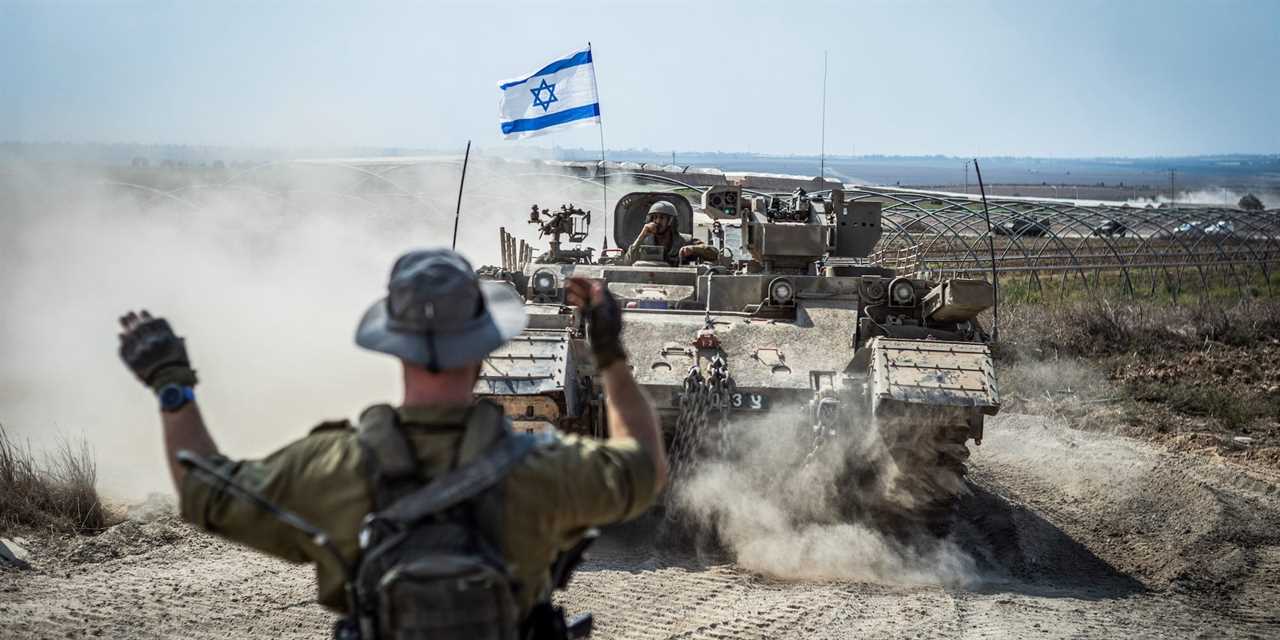
Ilia Yefimovich/Getty images
- Israel faces long odds of ending Hamas, and even if it succeeds it's faced with a difficult dilemma: What comes next?
- The US invaded Iraq and Afghanistan but ran into trouble when it tried to rebuild their governments.
- "The Israelis have a similar problem here," a military expert with RAND told Insider.
Israel's military is leveling the tiny Gaza enclave with the overwhelming force of a nation that, much like the US in 2001, vows never again to be blindsided by a massive terrorist attack.
Hamas, Israelis feel, must be destroyed.
But beyond the certainty many Israelis feel about ending Hamas, there lies an uncertain future and a political dilemma Israel has avoided addressing — a predicament that hamstrung a superior military power, the United States, in similar conflicts.
"The Achilles heel of the US operation in Iraq and Afghanistan was that we had the game plan for the invasion more or less worked reasonably smoothly," Raphel Cohen, the director of the Strategy and Doctrine Program of RAND Project AIR FORCE, told Insider. "The problem was what came next and that was where we ran into trouble. The Israelis have a similar problem here."
Israel faces long odds of permanently ending Hamas. Even if it succeeds in doing so, its leaders have failed to clearly articulate what will replace it and why that represents a better future for Palestinians in Gaza. It's a critical question that will define whether Israel's war succeeds, experts on military strategy told Insider.
"The more important lessons from 9/11 and the wars that followed are political: Who is going to provide security in Gaza once the fighting ends?" said retired US Army Col. Peter Mansoor, an Iraq veteran and leading counter-insurgency strategist. "Because without security, nothing else will last."
In the month since Hamas carried out its terror attacks in Israel — killing at least 1,200 people, injuring thousands more, and seizing over 200 hostages, including children and seniors — Israel has unleashed an all-out war in Gaza echoing the destructive battles of World War II.
Mosques toppled. Roads ruptured. Refugee centers reduced to rubble. Civilians struggling to find enough water while hospitals go dark.
The Israel Defense Forces are taking out what they say are military targets in these civilian settings, often with overpowering force that has resulted in thousands of civilian casualties. Israel's air force has conducted nonstop bombing runs against the strip as ground forces prepare to clear Gaza's largest city of every Hamas fighter. Israeli military officials are clear that their aim is the total destruction of Hamas. What's less clear is who will lead Gaza afterward.
"I think Israel will, for an indefinite period, will have the overall security responsibility because we've seen what happens when we don't have it," Israeli Prime Minister Benjamin Netanyahu told ABC News on Monday.
Likewise, an Israeli cabinet minister would only tell reporters last weekend that "there's a lot of ideas that are out there" about what comes after Hamas.
Netanyahu advisers suggest that Israeli troops will remain in Gaza at least until it is demilitarized, a process that will likely take months at best and during which they could face an insurgency supported by a radicalized population.
It remains unclear how long Israel will re-occupy the territory or if they would eventually transfer it to, for example, a peacekeeping force or another authority.
They've "ping-ponged around this question of what happens next," Cohen said. "So this is clearly a problem for Israel in that they haven't been able to articulate what their goals are."
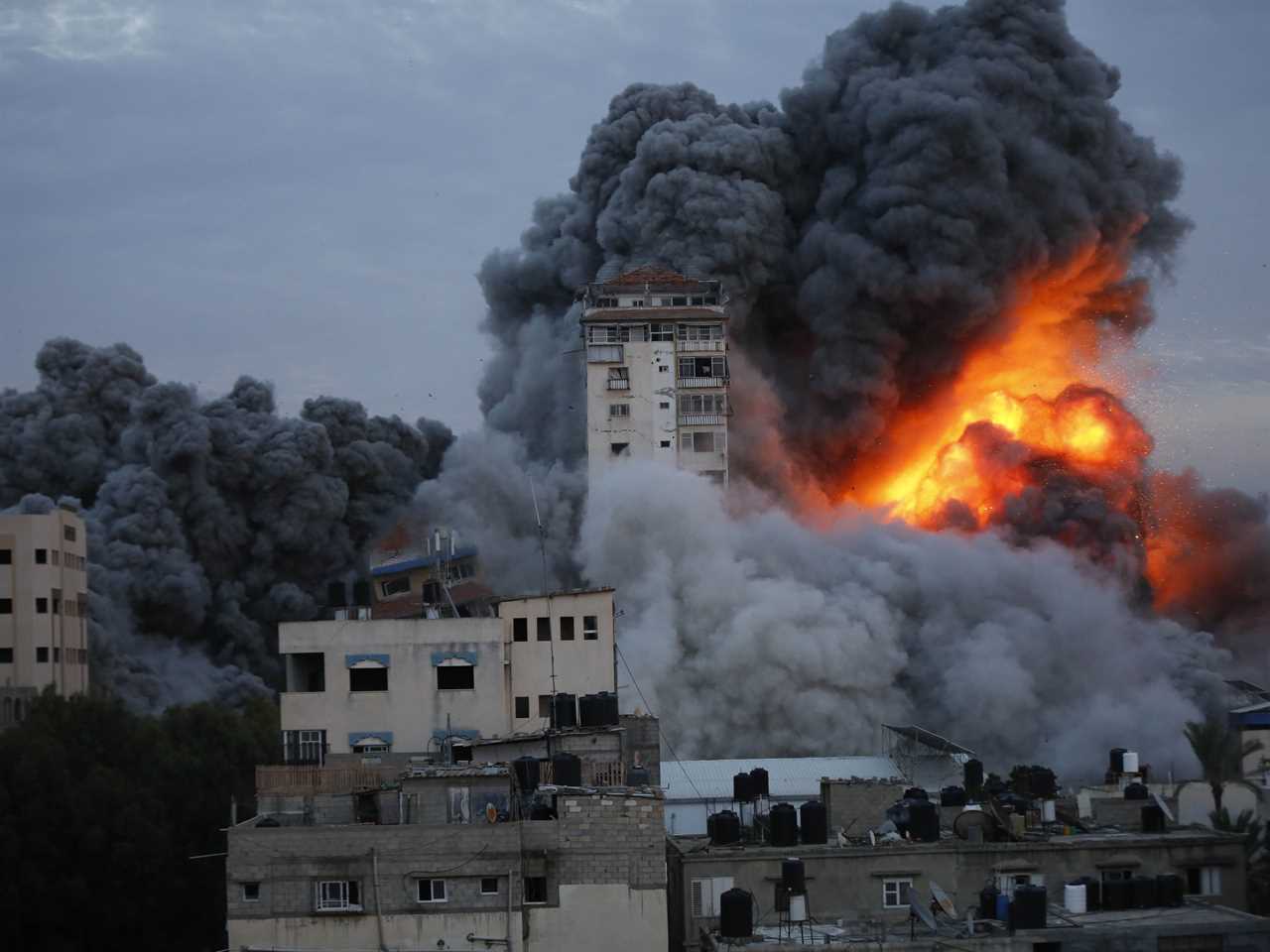
Ashraf Amra/Anadolu Agency via Getty Images
'Mowing the grass'
Since Israel's withdrawal from Gaza in 2005, it has had four major clashes: 2008, 2014, 2021, and now.
Israel's strategy towards Hamas-controlled Gaza has been described as "mowing the grass," which refers to Israel's policy of tolerating Hamas control until its attacks justify short campaigns to kill militants and reduce their capacity to threaten Israel from the impoverished enclave.
This strategy "failed spectacularly" during the October 7 terror attacks, Cohen argued in a recent piece published by RAND, because it showed Israel couldn't contain Hamas and its periodic operations failed to deter them. And critics say that Israeli operations in service of this strategy often result in a disproportionate number of deaths compared to those caused by Hamas attacks.
Cohen described "mowing the grass" as "strategic fatalism" in the RAND piece, adding that it "reflects a large measure of hubris." Cohen argued it has also failed to break the cycle of Palestinian radicalization that fuels the attacks.
Israel's belief that it can hit Hamas just enough to stave off any attacks but not so hard that Gaza descends into chaos is a "hard if not impossible balance to strike year after year, especially as Gaza's internal pressures mount," he wrote.
In the aftermath of the October 7 attacks, Israel has abandoned "mowing the grass" in favor of a much more far-reaching and deadly strategy.
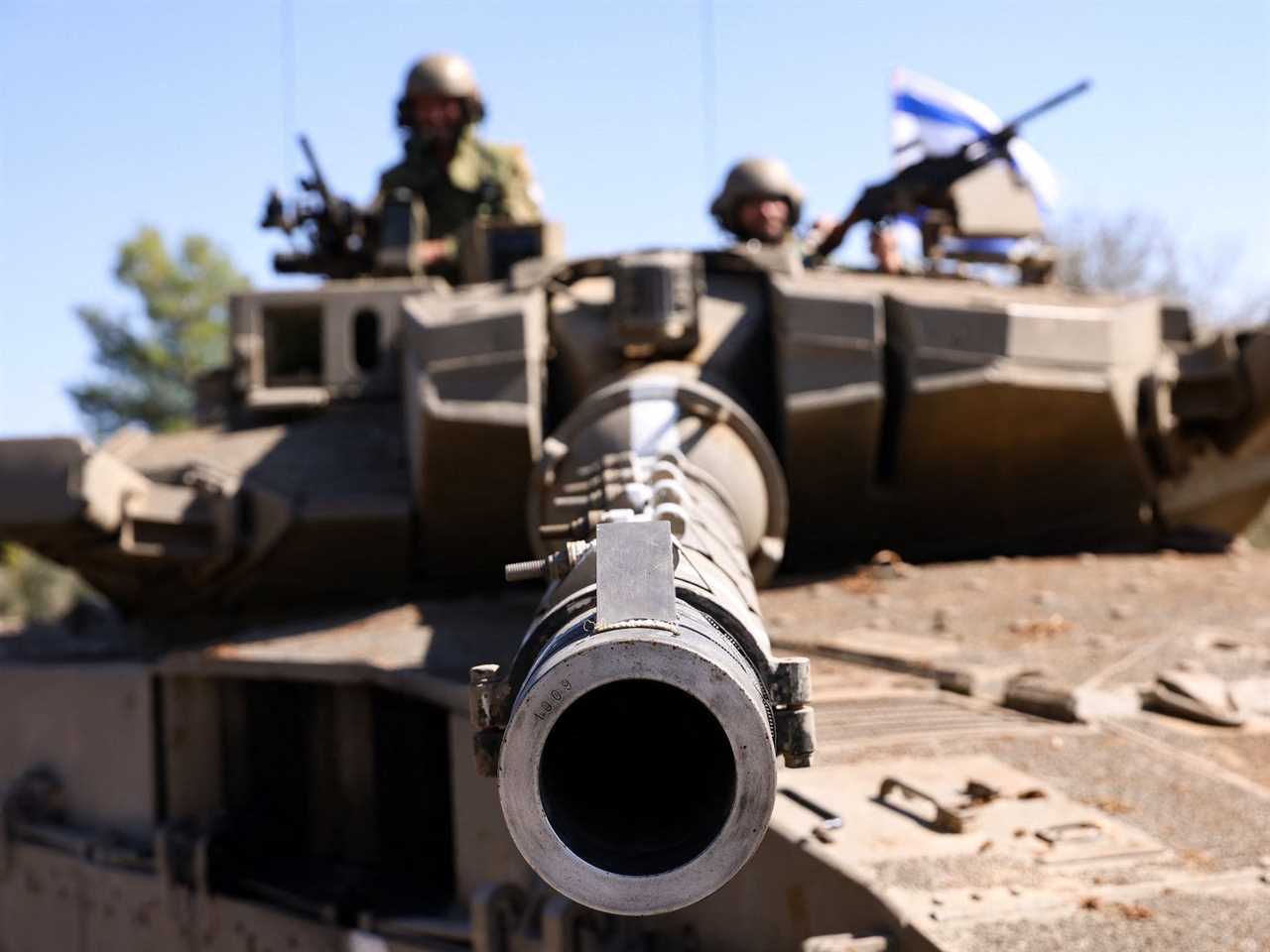
Jalaa Marey/Getty Images
Israel's war with Hamas is still in its nascent stages, but modern urban battles already pale in comparison.
The long, nine-month siege of Mosul, Iraq by the Iraqi government coalition, backed by the US, in its fight to uproot the Islamic State left up to 11,000 civilians dead. The US-led effort to clear insurgents from Fallujah, Iraq in 2004 killed roughly 800 civilians in six weeks. By contrast, in a month's time, the war in Gaza has already ended the lives of over 10,800 people, 41% of whom are children, according to the Hamas-led Ministry of Health in Gaza. Although this count does not differentiate between fighters and civilians, it is nonetheless a staggering figure.
The vast majority of those deaths come from Israel's airstrikes, and the death toll will almost certainly keep climbing as Israeli troops move to strike the 30,000 Hamas militants lying in wait in Gaza city, believed to be home to hundreds of thousands of civilians.
The sheer scale of the Israeli effort may trigger a dynamic that's known to US policy makers as the Pottery Barn rule — you break it, you buy it. This was how Secretary of State Colin Powell privately warned President George W. Bush about the consequences of invading Iraq. According to this axiom, Israel must be prepared to bear the costs of rebuilding Gaza and endure its dangers unless it finds another authority to intervene.

Ohio Army National Guard Historical Collections
As the war takes shape, the most apt comparison for a major urban battle involving a Western military may require looking much farther back, to the last days of World War II. In 1945, American G.I.s assaulted the capital of the Philippines to root out nearly 20,000 Japanese defenders. They liberated Manila after a month but at a huge cost.
It shattered the city and claimed 100,000 civilian lives.
It's telling that Israeli leaders have directly compared their Hamas fight to World War II, the conflict that the US waged with full-force, viewing it as necessary, even existential. Netanyahu has compared the October 7 terrorist attacks to the 1941 bombing of Pearl Harbor that pulled the US into WWII.
The Israel-Hamas conflict is "not a war of choice for Israel," Cohen said. "The October 7 attacks made it essential that the Israelis take some sort of action to deny Hamas control of Gaza, if only to prevent another 10/7 attack."
Hamas leaders have said the militant group will try to carry out more attacks until Israel is erased. "So Israel was in some ways forced into a policy of regime change in ways that we weren't necessarily forced into with Iraq," Cohen said.
Israel faces geographical challenges with Gaza that the US did not with Iraq and Afghanistan. The US eventually withdrew from Iraq and Afghanistan, though it took years for American officials to make the decision, and about 2,500 US troops remain in Iraq.
"The Israelis can't really withdraw here by reasons of geography," Cohen said. "Gaza will always be next door to them, so they're going to have to remain engaged in Gaza, whether they like it or not, for the foreseeable future."
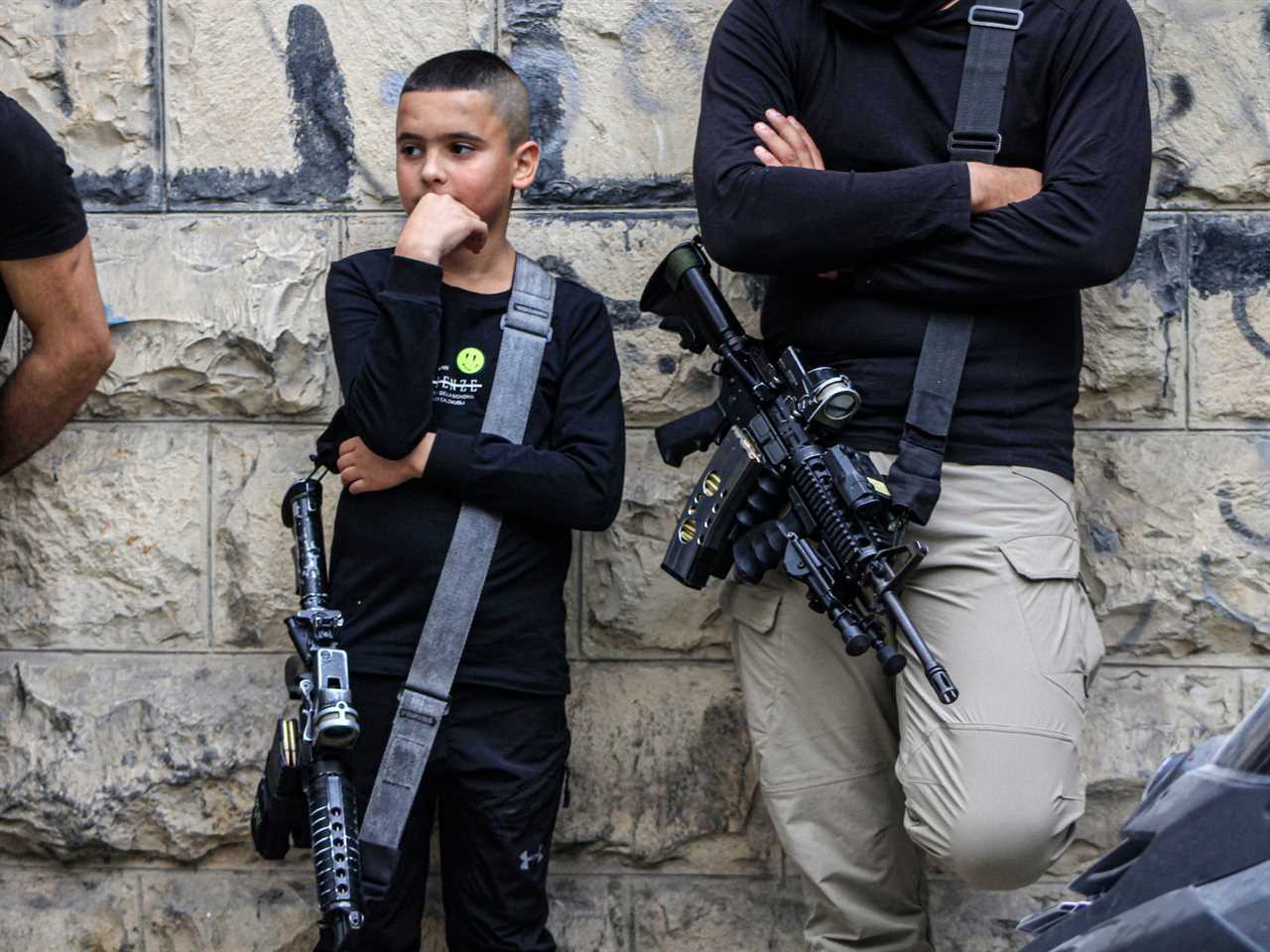
Nasser Ishtayeh/Getty Images
Getting 'nowhere'
Peter Mansoor was a newly retired Army colonel when he arrived in Tel Aviv in 2008. He had come to speak to Israeli officers about the success of the American troop plus-up and counter-insurgency effort, known as "the Surge," that reduced the violence roiling Iraq. As executive officer to Gen. David Petraeus, the effort's architect and leader of the Multi-National Force-Iraq, Mansoor brought unique insight to his Israeli counterparts.
"The number one lesson I gave them is you gotta find willing partners among the other side," Mansoor — now a professor of military history at the Ohio State University and author of the book, "Surge: My Journey with General David Petraeus and the Remaking of the Iraq war" — recalled in a phone interview with Insider.
"You don't reconcile with your friends, They're already your friends. You reconcile with people who have blood on their hands. And you've gotta find portions of the opposition that are just willing to put down their arms, at least temporarily, and give the political process a chance."
That is what US leaders sought in Iraq. Americans supported moderate Sunni tribal leaders and helped fund the militias that patrolled their communities in an effort to cut support for al Qaeda in Iraq, which was fueling violence and undermining the US-backed government. For a nation on the brink of a full blown civil war, the strategy worked.
After Mansoor's briefing, some Israeli officers came up to talk to him.
"The Israeli officers who were there back in 2008 told me, 'Well that's not possible with the Palestinians. So what else do you have for us?'" Mansoor recalled.
"And I looked at them and said, 'If you ignore the first and most far-reaching lesson of the Surge, you're going to get nowhere.'"
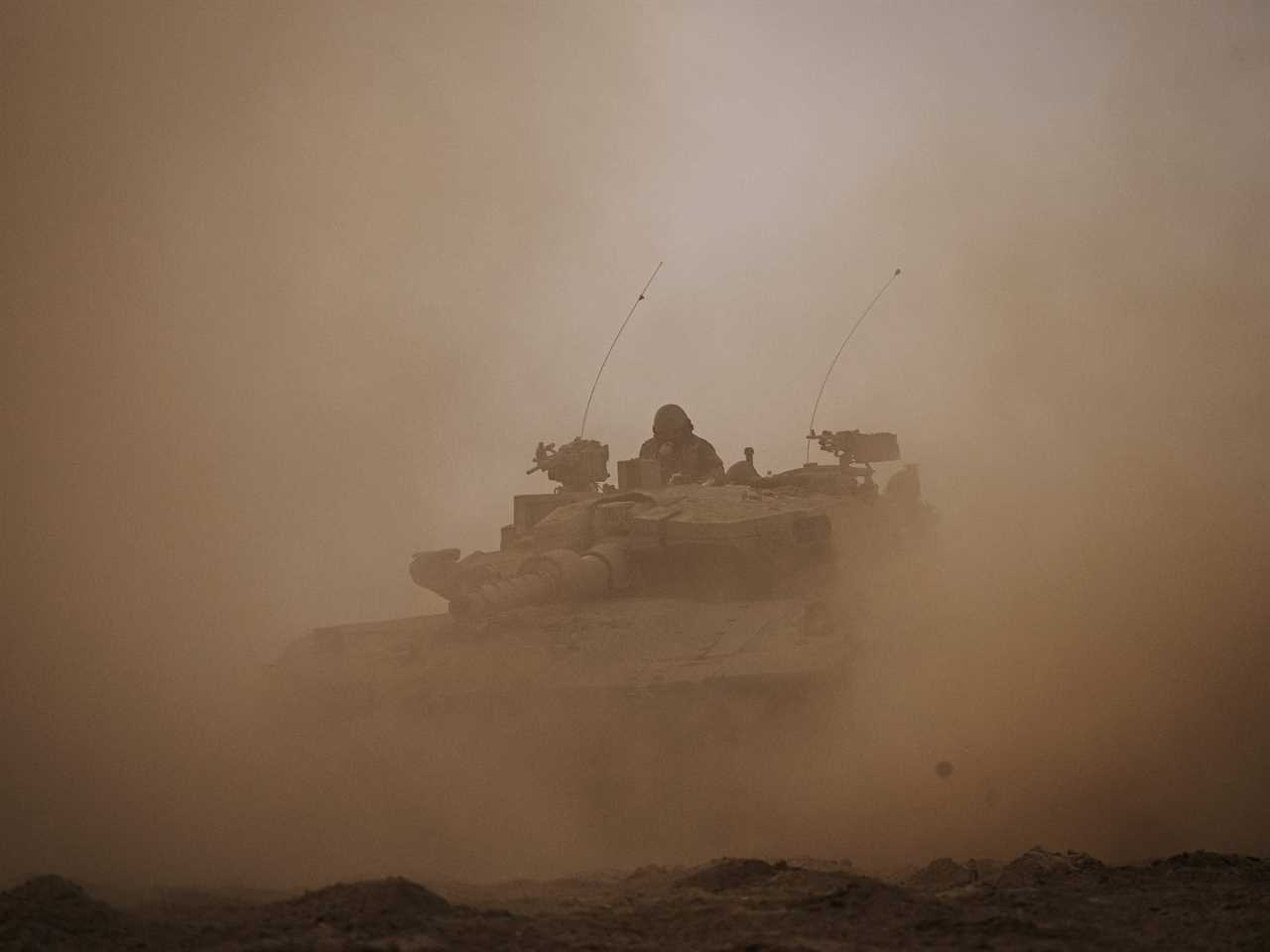
Marcus Yam/Getty Images
In this war, Israeli leaders have used heated rhetoric while their forces maintain a deadly bombing campaign. Israel's president has said that the "entire nation" of Gaza is "responsible" for Hamas' terror attacks. One minister even spoke about the possibility of nuking it, though Netanyahu and the defense minister criticized his comments.
Netanyahu has, however, used Western military actions in World War II to justify the killing of civilians if it results from strikes against military targets. In a late October address, he pointed to a British bombing operation near the end of the war in 1945 during which the Royal Air Force missed the intended target and struck a school.
"That is not a war crime," the prime minister said.
The wholesale slaughter of civilian populations in World War II — 45 million by one estimate — led to the creation of a new Geneva convention specifically addressing protections for civilians in war zones.
In the battle for Manila, or the atomic bombings of Hiroshima and Nagasaki, the US used overwhelming force and simply accepted the mass civilian death and suffering that came with it.
Yet destruction on such a scale today, when social media and camera-equipped cell phones can capture war's costs and cruelty, risks a global backlash unlike any Israel has seen in its existence.
And even then it may not succeed in its war against Hamas in the aftermath of the October 7 attacks. A RAND study of campaigns against terror groups over four decades found that only 7% were dismantled by military force.
Should Israel beat those odds and destroy Hamas, that's still not the end of the road. The question persists: What next?
For Mansoor, the counter-insurgency expert, the long-term success of Israel's war will be driven by its willingness to empower Palestinians looking to build a better future peacefully alongside Israel.
"You're going to have to be willing to give the Palestinians what they want. Not the destruction of Israel of course, but a state on the West Bank and in Gaza," Mansoor said. "If the Israelis are not willing to do that then we're looking at something like this happening again in the future."
Read More
By: [email protected] (Sam Fellman,Sonam Sheth)
Title: Israel is looking to World War II in its Gaza fight, and it risks taking lessons from the wrong war
Sourced From: www.businessinsider.com/israel-risks-taking-lessons-for-gaza-fight-from-the-wrong-war-2023-11
Published Date: Sat, 11 Nov 2023 12:00:01 +0000
.png)





